Yes, a free book offer. But first I need to, as the support group leaders used to say, share.
I hope you saw two weeks ago my missive about my own sense of frustration in achieving the goals of our own calling here at Hearts & Minds — selling useful books about the Lordship of Christ over all of life, about wise and faithful ways of relating faith to work, calling, career, the arts, culture, education, civic life, politics and such. Although we carry tons of books about church, worship, liturgy, and personal matters like spirituality, prayer, Bible study and personal growth, our deepest passions are for getting Christian folks – shaped well by worship, Bible study, spiritual practices and healthy family relationships, to be sure – to think more carefully about serving God outside of the walls of the church.
My BookNotes piece written the day after the election suggested that I was feeling like a failure: we have all these books and I have written all those columns about faith and citizenship, about public justice, about the Biblical demand to be somehow distinctive about our political loyalties, and yet we hear people of faith offering fairly non-theological justifications for this or that candidate. Many evangelicals seemed particularly inarticulate about a Christian reason for their voting habits and it saddened me.
Some of our good friends on both sides of the isle could articulate profound and deeply Christian accounts of our political life and could explain why, given theological, Biblical, spiritual, reasoning, they vote as they do. Our hats are off to them. Chances are, they’ve read some of the books we’ve recommended, or something like them.
But most religious folks, you know, simply cannot.
They follow their gut, they buy popular pagan notions like “self-interest” or fret exclusively about the size of government or about the rate of economic growth; they wish for American greatness without much Biblical justification or they cite unbiblical notions from Jefferson or Ayn Rand or Trump or Hillary, with little or no connection to the grand tradition of Christian political wisdom handed down over the years. Some preachers preach and some pundits write, telling us what we should do, but too often they seem to be radically disconnected from the best thinkers and the tradition of theological reflection on these things. The disconnect between our worship on Sunday and our work in the world seems ever so evident.
I shared, in that post, my anguish that we’ve got the resources here to help us be more informed and mature, thoughtful and faithful, but the sad truth is that hardly anybody buys them. Hardly any churches of which we know host classes or book clubs or conversation groups using the sorts of books we tried to sell about political life. There are good exceptions, but we’ve not resourced enough folks to make a difference. Like I said, I feel like we’ve failed in doing our job.
So, I cry in my beer and lament not only the state of the Christian mind and the lack of consensus among church folks on the principles that should guide our public life, but I worry about the state of the union. And I worry about the role of the small town theological bookseller, too.
But, worried and sobered or not, we keep on, you and I, taking courage — and even joy and hope — in the grace God has shown us, the burden and gift the Spirit has given us, this burden inspiring us to want to be life-long learners, wanting to relate “heart and mind” and to be formed in the ways of the coming King. We keep trying to spread the word, literally. We promote books like Chris Smith’s Reading for the Common Good and Greg Jao’s little Your Mind’s Mission. I will keep telling all who care (God bless you!) about new books that I think will inspire and help you in your own journey as Christian thought leaders — if you read more than a book or two a year and talk about them to others you are a thought leader, you know! We will keep on reviewing and trying to sell books that we think will be helpful for the broader Christian community and our witness in the world.
We know that all of this helps some of you and we know you value our efforts. Thanks. More than you know, thanks.
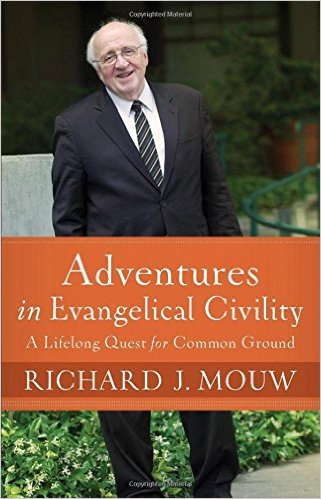 The brand new intellectual biography of Richard J. Mouw, a scholar and leader who has influenced us considerably, is called Adventures in Evangelical Civility: A Lifelong Quest for Common Ground (Brazos Press; $24.99.) It is just the sort of book that will help us redouble our efforts to think Christianly by reading widely, generously, and to engage in creative initiatives to find common ground with others. I think it is one of the best books of the year and for some of us, it is going to be a true blessing to read — just what the doctor ordered. Mouw is a theologian whom I admire, a pious and Godly evangelical, a ‘world-and-life-view’ sort of Dutch neo-Calvinist with some hefty degrees behind his career in political philosophy, who can write clearly and well. There are many reasons I like his work so much and they are all on display in this remarkable new memoir.
The brand new intellectual biography of Richard J. Mouw, a scholar and leader who has influenced us considerably, is called Adventures in Evangelical Civility: A Lifelong Quest for Common Ground (Brazos Press; $24.99.) It is just the sort of book that will help us redouble our efforts to think Christianly by reading widely, generously, and to engage in creative initiatives to find common ground with others. I think it is one of the best books of the year and for some of us, it is going to be a true blessing to read — just what the doctor ordered. Mouw is a theologian whom I admire, a pious and Godly evangelical, a ‘world-and-life-view’ sort of Dutch neo-Calvinist with some hefty degrees behind his career in political philosophy, who can write clearly and well. There are many reasons I like his work so much and they are all on display in this remarkable new memoir.
But, please, forgive me, bearing with me as I ruminate just a bit more about the malaise this month before telling you a bit about this fine, thoughtful book. I want to make the case, yet again, why such a book is so very important here, now, in late Fall 2016.
I assume most Hearts & Minds friends will understand this, even if it is weighing on some of us more heavily than others, but the weeks since the election have been hard. Very hard.
Eruptions of racial violence – from a variety of quarters – has horrified us; vile ideas about registering Muslims have stunned even those skeptical of Mr. Trump’s civil liberties; frighteningly violent targeting of GLTBQ persons has occurred this week; terrible complexities in Syria makes us wonder if anything can be done to alleviate the suffering there and how Mr. Trump’s obvious misunderstanding of the details on the ground will affect the region. U.S. policies have been a hot mess forever, there, it seems, and it isn’t going to get better any time soon, we now know that. As Romans 8 reminds us, the whole creation groans…
In the last week I have read deeply moving pieces by women who were sexually abused in their teen years and how awful it has been for them knowing that some of their neighbors and fellows citizens (and family and church members) voted for Mr. Trump knowing how he bragged about walking into the dressing rooms of half-naked girls. At Redeemer Presbyterian in New York last week we heard Nancy Jo Sales, author of American Girls: Social Media and the Secret Lives of Teenagers, a thick, disturbing book based on interviews with girls about their social media habits, documenting cyber-bullying, sexting, the presence of porn and other hurtful things often coming from from boys. Ms. Sales not only reminded us of some of the negative effects of our on-line cultures, but told through angry tears of the emails she has gotten from her young friends, school teachers, and parents last week who have experienced sexual predators and cyber-bullying who are deeply alarmed that we now have a President-elect who reminds them of the creepy, hormone-driven boys who disrespect them, who make their lives feel threatened, who gawk and swear and reduce them to numbers or pussy to be grabbed.
I’ve heard a lot of pain expressed this week, we know there is a lot of understandable fear. No matter who you voted for, you must consider this anguish bubbling up among our neighbors and friends. But feeling the pain and dismay of those who are on the front line of showing Christ-like care for immigrants or those working for racial justice or those who fear the loss of any small smidgen of policy reform about ecological stewardship and climate change issues, of those who are working against rape culture and sexual abuse, is not the only sort of anguish I’m noticing.
Some of my best friends are most distressed about the statistic that 80% or so of white evangelicals proudly voted for this very bad man who offered confusing, peculiar policy proposals. They are concerned about what this says to the watching world, to those already on the fringe of evangelical faith and how this might set back the outreach and growth of the gospel itself. Oddly, those who desire to be known by the first things of the gospel — evangelicals, supposedly — have now allowed other things to clutter their witness. We’re seeing articles now asking “What is an evangelical?” and saying things like “If this is what it means to be a Bible-believing Christian, count me out!” As a person who cares very much about the reputation of evangelical Christianity (and as many of our BookNotes friends do, too) you know these are trying times. For some watching this unfold, it has become an existential crisis, a faith crisis, a worldview crisis. And that can be traumatic.
I have my own thoughts about this – see that previous post where I name my own frustrations about the lack of a Christian mind informed by the best books and scholars writing these days and how in many ways this bad situation is the faith community’s own fault – but one of the things that I want to say here is that the pollsters and media (including some that really ought to know better) have seemed to have conflated moderate evangelicalism and hard-right fundamentalism. And, as is too typical, folks confuse being theologically conservative and politically or culturally conservative. The one does not necessarily follow from the other.
Whether serious fundamentalists — Bible believing, blood bought, Jesus-exalting, holiness-seeking, truly saved, properly baptized, non-compromising, world-hating, Holy Ghost-inspired, King James only fundamentalists — voted for Trump I don’t really know. But the religious right led by the likes of Junior Falwell are not primarily evangelicals. They are fundamentalists and they are not the same tribe as those who read Christianity Today, follow the Gospel Coalition, or send their kids to Wheaton or Calvin or Messiah or Gordon, whose pastors went to Fuller or Gordon-Conwell or Trinity or Covenant or Moody, who take advanced learning degrees at Regent in British Colombia or Seattle School of Theology or Denver Seminary or take extra courses at RTS in Charlotte or enjoy adult learning with the C.S. Lewis Institute or the Gotham Fellowship in New York or the Laity Lodge in Texas or attend stuff like the Passion Conference or the Calvin Institute on Christian Worship Symposiums or Urbana or Jubilee or the Justice Conference. That is, mainstream evangelicals are simply different than fundamentalists. There are theological differences and there are cultural differences. I know very few self-identified evangelicals who voted happily for Donald Trump. If the polls are saying conservative Christians voted for him, I suspect they are referring to fundamentalists and prosperity preaching Pentecostals. And that is a difference that makes a difference.
As an ecumenically-minded Christian I am very interested in how Catholics and liberal Protestants and evangelicals relate. Sometimes the Orthodox join in, but often not. True-blue, fightin’ fundies (as they used to call themselves) usually aren’t interested, either. For them it would be pointless to take seriously the faith claims of those who they think are not even saved.
Evangelicals, though, even quite conservative ones, are deep in conversations these days in places like the Society of Biblical Literature, in Christian Churches Together, and in other efforts that invite a bigger tent of conversation within the Body of Christ. Some of the brightest theological scholars are at evangelical institutions and they are respected in their fields. Some of the most respected scholarly theological books come from IVP Academic and Baker Academic, say.
It is my experience that mainline progressive and liturgical Protestants are less tolerant of evangelicals – often confusing them with fundamentalists and seemingly unaware of the sea-changes within evangelicalism in the last 30 years – than the other way around; many evangelicals read Richard Rohr and Nadia Bolz-Weber and Harvey Cox and Diana Butler Bass and although they may disagree with them, they are in respectful engagement. Interestingly, non-evangelical authors like Walt Brueggemann and Jorgen Moltmann speak at evangelical confabs. In our earliest days of book-selling nearly 35 years ago, evangelicals (who sometimes still called themselves neo-fundamentalists) were still pretty antagonistic to mainline folks, but that is changing, and we are grateful.
Which brings me back to this: the media endlessly conflates old school Pentecostals, modern renewing charismatics, evangelicals (both conservative and more progressive) and hard-core fundamentalists. More progressive voices that were once evangelical – think of Brian McLaren or Sojourners, say, who are now more aligned with mainline denominational impulses — are in the mix, too. Not to mention the great increase of third-world Evangelical or Pentecostal Christians that are now involved in Christian communities across North America. (You’ve got to read the brilliant and pioneering story of that new reality in the great book by global Christian leader Wes Granberg-Michaelson, From Times Square to Timbuktu: The Post-Christian West Meets the Non-Western Church.)
I doubt if the news reporters seem to get that historic ethnic churches — black and Latino, at least — and Mennonites, maybe, are somehow different than mainline Protestants and yet not grouped in the same caricature of white evangelicals. They may be fiery but they usually aren’t fundamentalist. I’m sure you know that some African American and Latino churches are passionately upbeat and preachy about the gospel in evangelical ways but are, largely, politically liberal, and sometimes perplexingly (some might say delightfully) uneven theologically. It’s complicated, eh?
So that report of 80% of white evangelicals happily voting for Mr. Trump may not be quite right and it is important we keep in mind the diversity of thought and practice within the big Body of Christ. Our bookstore is passionate about being ecumenical, and we think it matters.
ADVENTURES IN EVANGELICAL CIVILITY: THE LIFELONG QUEST FOR COMMON GROUND
 Which brings me to one of the great values of Adventures in Evangelical Civility, this vital new book by Richard Mouw, one of the unsung ecumenical leaders of our age.
Which brings me to one of the great values of Adventures in Evangelical Civility, this vital new book by Richard Mouw, one of the unsung ecumenical leaders of our age.
Rich Mouw is, as much as anybody I read, a lovely voice that recognizes and calmly names different sorts of Christians with truly earnest regard. Mouw used to teach political theory at Calvin College in Grand Rapids which is run by a ethnically-particular denomination and after a while ended up President of the most ethnically and denominationally diverse seminary on the planet. This appointment suited him well because he, unlike anyone I know, is both deeply placed within his own specific tradition, and is aware of, eager to learn from, and fluent in conversing with others. This new book helps explain why.
That Dr. Mouw’s memoir is about civility will come as no surprise to those who know his work; the subtitle is about the search for common ground – that the noble sounding word quest is even used is very important. It is one reason why this book is so significant. (Don’t we need that quest for common ground now more than ever?) Mouw illustrates for us not only what a mature evangelical leader thinks about, and thinks like, but it helps us see how his particular sort of evangelicalism compares and contrasts with others. And he does this not only because of his personality or style but because of serious theological and philosophical convictions, rooted deep in his theological ground.
As such, Mouw seems to represent the sorts of folk who simply aren’t showing up in the “white evangelicals who voted for Trump” demographic. He represents something much more interesting, nuanced, considered, and, I pray, the wave of the future.
I will admit that it is quite natural for me to promote Dr. Mouw’s work – he is one of the finest scholars and interpreters of the late 19th century/early 20th century theologian/scholar/statesman Abraham Kuyper, a tradition I was enfolded into during my college years. One of my own mentors in Western Pennsylvania, Dr. Peter J. Steen, who taught of these things knew Mouw in those years, as did CPJ founder James Skillen, another late 70s hero who was influential. I hope you might realize how important this is for Beth and me, how influential it has been informing the tone and texture of our work here at the bookstore.
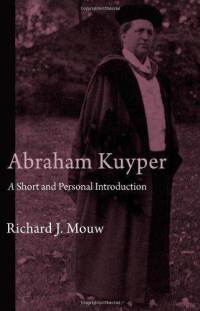 We have drawn on Mouw’s previous books often, starting with his two 1970s books on political witness and how the Biblical drama — creation, fall, redemption, restoration — is a helpful lens through which to understand God’s perspective on politic life. His more recent, accessible, inspiring books have been helpful for those of us struggling with questions of civility (Uncommon Decency, which I will mention again, below), a Biblical theology of common grace and cultural engagement (He Shines in All That’s Fair), or about the nature of uniquely Christian scholarship (the recent collection of short pieces Called to the Life of the Mind is very nice.) His must-read Abraham Kuyper: A Short and Personal Introduction has been immensely helpful in offering a brief overview of that titan of a Christian
We have drawn on Mouw’s previous books often, starting with his two 1970s books on political witness and how the Biblical drama — creation, fall, redemption, restoration — is a helpful lens through which to understand God’s perspective on politic life. His more recent, accessible, inspiring books have been helpful for those of us struggling with questions of civility (Uncommon Decency, which I will mention again, below), a Biblical theology of common grace and cultural engagement (He Shines in All That’s Fair), or about the nature of uniquely Christian scholarship (the recent collection of short pieces Called to the Life of the Mind is very nice.) His must-read Abraham Kuyper: A Short and Personal Introduction has been immensely helpful in offering a brief overview of that titan of a Christian 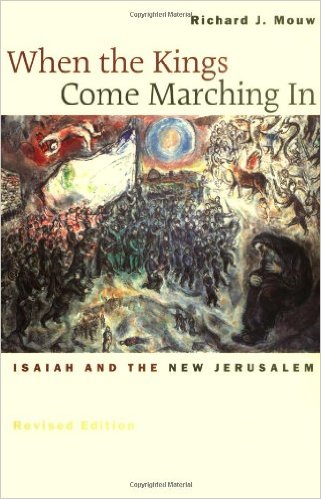 thinker and “every square inch being redeemed” sort of faith. And, one of my all time favorite Biblical studies books is his small but potent When the Kings Come Marching In: Isaiah and the New Jerusalem that asks about the relationship between our cultural activities now and how they might endure into the new creation. Oh, how I wish his fantastic book (part of a Fortress Press series about the role of the laity edited by the crusty Anglican Mark Gibbs, which Mouw tells about in Adventures… ) entitled Called to Holy Worldliness was still in print!
thinker and “every square inch being redeemed” sort of faith. And, one of my all time favorite Biblical studies books is his small but potent When the Kings Come Marching In: Isaiah and the New Jerusalem that asks about the relationship between our cultural activities now and how they might endure into the new creation. Oh, how I wish his fantastic book (part of a Fortress Press series about the role of the laity edited by the crusty Anglican Mark Gibbs, which Mouw tells about in Adventures… ) entitled Called to Holy Worldliness was still in print!
Dr. Mouw’s early days of being a Christian scholar – his college years, his years of graduate studies, the early seasons of his marriage to Phyllis while at University of Chicago and then teaching in Canada, and his eventual appointment to Calvin College in Michigan – are documented here. It is exceedingly interesting to learn about what books he read, how he struggled with this idea or that, how he compared or contrasted this prof and that one, this textbook and that one, this seminal work in a field with yet another vital scholar and how he did his teaching, the work he took up.
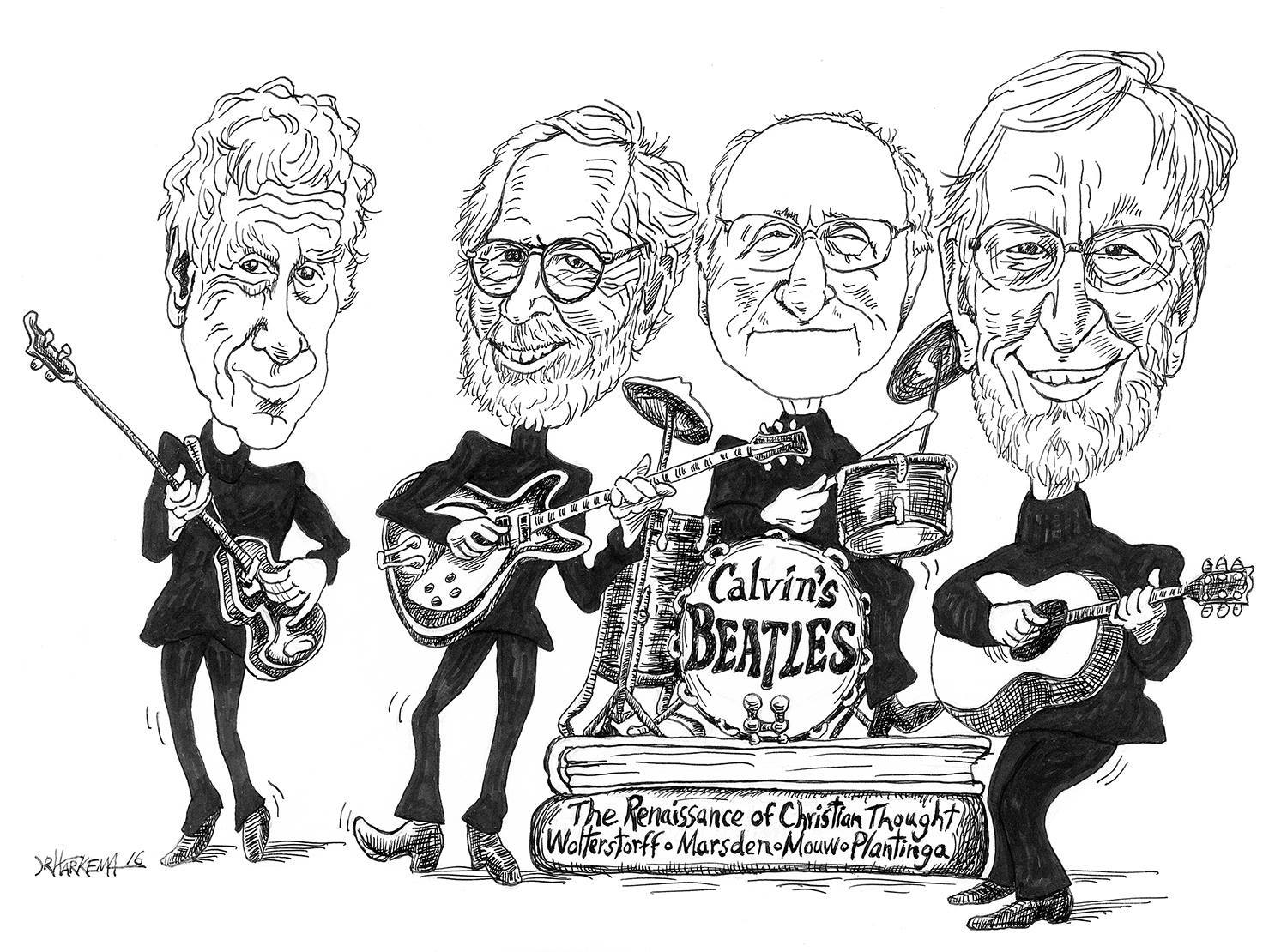 For anyone who cares about the development of the Christian mind, Adventures in Evangelical Civility is illustrative and (okay, at least for we geeky types) nothing short of thrilling. Dr. Mouw ended up at Calvin College in the middle of a nearly legendary period in the late 1960s and became friends with other renowned scholars such as Nicholas Wolterstorff, Alvin Plantinga, George Marsden, Mark Noll, and others who went on to produce extraordinary scholarly output achieving exceptional academic fame. When your colleagues get their books published by Oxford and Cambridge University Presses and are nominated for Pulitzers and are invited to do some of the most prestigious scholarly lectures in the academy and you yourself end up at one of the most storied and significant religious institutes in the world, well, you’ve got to tell us how you got there.
For anyone who cares about the development of the Christian mind, Adventures in Evangelical Civility is illustrative and (okay, at least for we geeky types) nothing short of thrilling. Dr. Mouw ended up at Calvin College in the middle of a nearly legendary period in the late 1960s and became friends with other renowned scholars such as Nicholas Wolterstorff, Alvin Plantinga, George Marsden, Mark Noll, and others who went on to produce extraordinary scholarly output achieving exceptional academic fame. When your colleagues get their books published by Oxford and Cambridge University Presses and are nominated for Pulitzers and are invited to do some of the most prestigious scholarly lectures in the academy and you yourself end up at one of the most storied and significant religious institutes in the world, well, you’ve got to tell us how you got there.
And tell he does.
In a typical chapter early on, Mouw reflects on the struggle to understand the doctrine of the image of God in humankind. As you probably know there are several important theories, and as the theological consensus began to shift, Mouw was in the thick of it, reading Berkouwer and Berkhof and Bavinck (in Dutch, no doubt, but he doesn’t say) and Emil Brunner and others pioneering an emphasis that the imago Dei isn’t some aspect of our human-ness like our reason or morality, but our task or role, our mandate to “image” God in the world. This is a notion of our “culture making” calling which influenced Andy Crouch so beautifully causing him to write Culture Making and which Richard Middleton explores with exceptional scholarly depth in the highly regarded The Liberating Image. I have not read seriously in any of those original primary sources Mouw tells about (well, I carried Berkouwer with me as I hitch-hiked across the country in the early summer of 1976 and maybe read a few pages in the back of a truck somewhere in the Southwest, but I digress.)
I assume most BookNotes readers don’t read heady European theology, either, but in Mouw’s bookish memoir, he tells us what he read, what he got out of it, how it did or didn’t sit well with him, and what other books or professors or Bible teachings he had to grapple with and mix together to form his own view. And it is perfect for those of us who need the quick overview, the example of a serious scholar at work and the upshot of it all, clearly, calmly explained.
Mouw does this with other topics – always with clarity, with grace, illustrating his spirited eagerness to learn, and, now, even in this pleasant memoir, with an eagerness to teach. He has a section about what we can learn from Sartre and Camus. He ruminates on what he learned about human nature from those with other perspectives. He has a whole chapter on “when truth is distorted.” He explains different sorts of philosophers within the Reformed movement. I’m sure fellow scholars of near retirement age will smile along, having read perhaps the same seminal thinkers, struggled with the same heady ideas, but I’m also sure that the readers Mouw hopes for as well are younger folks, rising scholars, friends and fans of BookNotes, even, who want to be informed but are not called to that level of scholarly engagement in the academy. Maybe you, like me, feel called to be a bit of an armchair observer; we’re not going to read all the scholarly primary stuff, but we sure will find it helpful to have a guide over whose shoulder we can look, a distant-learning mentor who lays it out for us by way of simply telling his tale.
Mouw is perfect at this, diligently explaining this and that, walking us through the best quotes and important notions in the most significant of books and authors and what it all meant to him, and what it may mean to us. In a way, Adventures… is a undergraduate crash-course in Christian social thinking and whole-life discipleship. For those who like to learn, there’s just so much here that is fascinating and edifying.
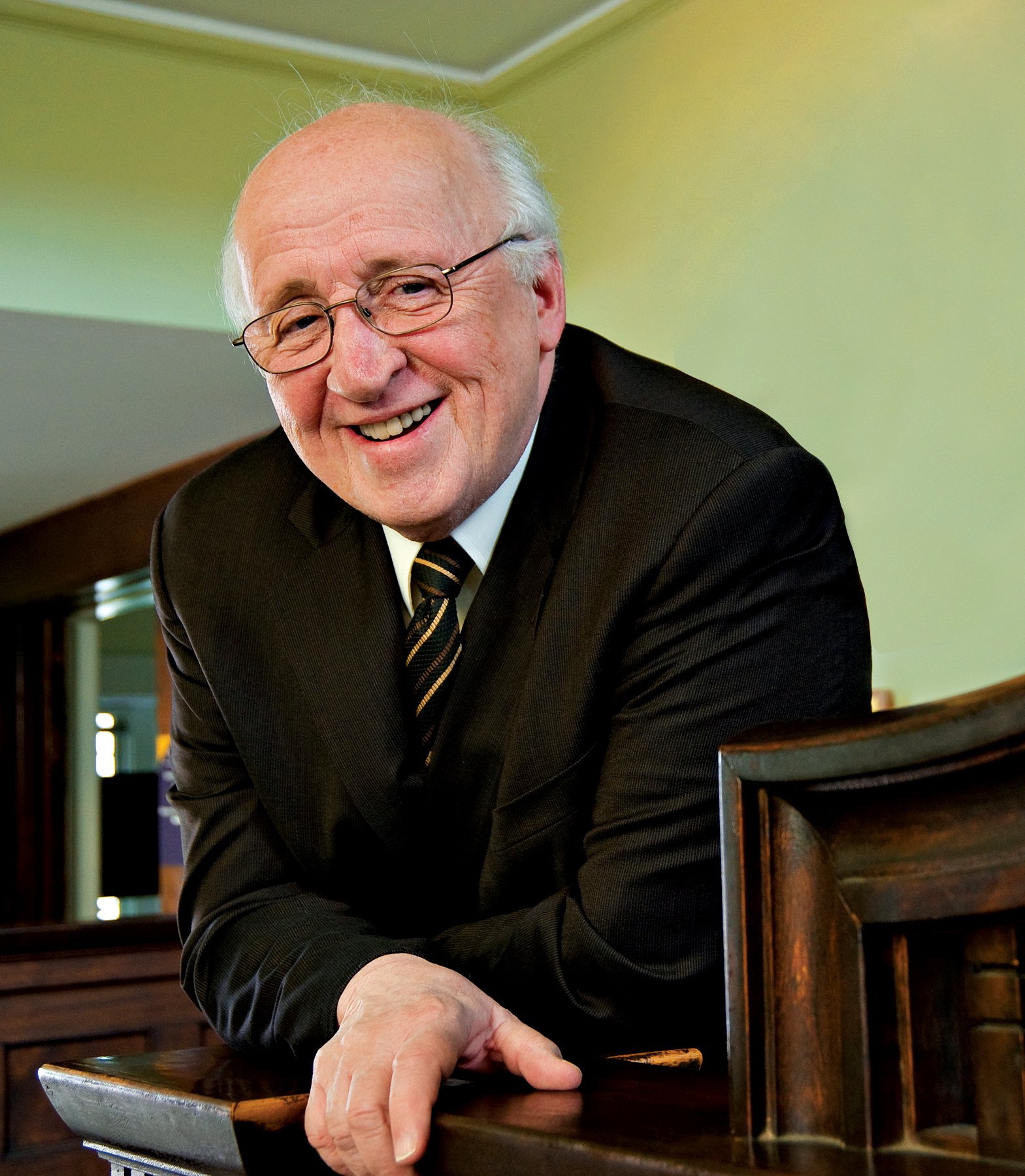 Richard is, as we’ve suggested, not only a fine Christian scholar – wanting to discern the good and the bad, the normative and the distorted, the faithful and the wrong-headed in the books he reads and the ideas he formulated as his own – but he does this with a highly developed sense of what Kuyper called “common grace.” That is, he searches for the “all truth is God’s truth” sort of stuff that even when proposed by pagan scholars or philosophers whose fundamental loyalties don’t comport with Christian faith, are still right and good and beautiful and true. Or maybe somewhat right, just pretty good, nearly lovely, and half true.
Richard is, as we’ve suggested, not only a fine Christian scholar – wanting to discern the good and the bad, the normative and the distorted, the faithful and the wrong-headed in the books he reads and the ideas he formulated as his own – but he does this with a highly developed sense of what Kuyper called “common grace.” That is, he searches for the “all truth is God’s truth” sort of stuff that even when proposed by pagan scholars or philosophers whose fundamental loyalties don’t comport with Christian faith, are still right and good and beautiful and true. Or maybe somewhat right, just pretty good, nearly lovely, and half true.
Can we discern the good, receiving as true blessings the insight of scholars, writers, artists, cultural reformers, civic leaders who offer some partial truth, some good inspiration? Must we be curmudgeonly, always naming the negative? Must we be mostly critical and say an uncompromising “no” to some stuff? (This was, in fact, another robust stream in Kuyper which he called “the anti-thesis.” Mouw tells us about this, too, and how this lead to the formation of uniquely Christian organizations in early 20th century Holland, including Kuyper’s own Free University and the Anti-Revolutionary Christian political party.) Mouw is Kuyper for today, balancing “common grace” and “the anti-thesis.” He draws some lines in the sand and then eagerly builds bridges.
He’s a master at this generous but principled sense of seeing the good and the unhelpful in books and scholars and cultural trends, and a good part of Adventures in Evangelical Civility: A Lifelong Quest… chronicles his journey in this process. It is, as I’ve said, important work for most of us, and thrilling for any of us who are armchair scholars, generalists who want in on some of this without being called to the primary work of being a philosopher or public intellectual. I loved reading it, and hope many of our fans will trust me on this and pick it up.
 As much of an evangelical and a “world-formative” (“transformationalist”) type neo-Calvinist as he is, Mouw has great loyalty to his old pietist background. (And, relatedly, he loves quoting old hymns!) I so enjoyed an older book he called The Smell of Sawdust: What Evangelicals Can Learn from Their Fundamentalist Heritage where he looks less at what is constricted and bad about fundamentalism, but what he and other progressive, evangelical intellectuals might what to honor and value from that tradition. (What did I tell you — he’s generous and kind to a fault.)
As much of an evangelical and a “world-formative” (“transformationalist”) type neo-Calvinist as he is, Mouw has great loyalty to his old pietist background. (And, relatedly, he loves quoting old hymns!) I so enjoyed an older book he called The Smell of Sawdust: What Evangelicals Can Learn from Their Fundamentalist Heritage where he looks less at what is constricted and bad about fundamentalism, but what he and other progressive, evangelical intellectuals might what to honor and value from that tradition. (What did I tell you — he’s generous and kind to a fault.)
Wherever you find yourself – in college, in business, in a church with varying viewpoints, at work with a diverse team of co-workers, or even in your extended family – this effort to see the good in things and work for common ground intellectually is a practice on display from which you can learn. How can we navigate faithfully the good and the bad around us, the wise and the foolish, saying yes and saying no, with grace and clarity? I trust Mouw on this as much as anyone and this book gives us a glimpse into how it’s done.
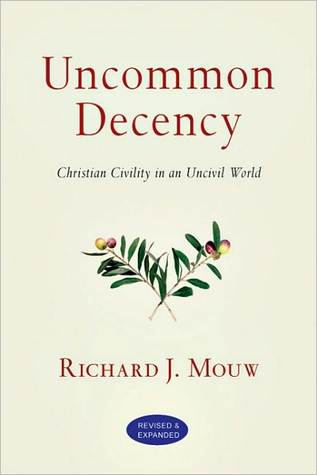 Mouw, you may know, wrote a popular level book called Uncommon Decency: Christian Civility in an Uncivil World (IVP; $16.00) which I’ve promoted for years, now. It is an all-time favorite of mine and I’ve read it several times. In it, he swipes a line from Martin Marty about how easy it is to be civil when one doesn’t hold passionate principles (and how easy it is to passionately promote one’s principles if one isn’t interested in civility.) Mouw, inspired by Marty, develops this theme of how to practice both: convicted civility. It’s a great book and you can see its fingerprints here in this more serious new one.
Mouw, you may know, wrote a popular level book called Uncommon Decency: Christian Civility in an Uncivil World (IVP; $16.00) which I’ve promoted for years, now. It is an all-time favorite of mine and I’ve read it several times. In it, he swipes a line from Martin Marty about how easy it is to be civil when one doesn’t hold passionate principles (and how easy it is to passionately promote one’s principles if one isn’t interested in civility.) Mouw, inspired by Marty, develops this theme of how to practice both: convicted civility. It’s a great book and you can see its fingerprints here in this more serious new one.
It has been an adventure for him to learn this habit and that little civility book is wise and beautiful and helpful. Adventures in… is less overt about how to do this, live with civility, but it bears witness to a life doing so in both the church and the world of higher education. Mouw is quick to admit (and tells some honest stories about) his failures in this regard. One can only admire such a person and pray that his tribe increases. Maybe if enough of us pay attention to this carefully-developed intellectual memoir we will see for ourselves, how it happens, the pitfalls to avoid, the quandaries of such commitments, and difficulties that ensue in this particular calling. I don’t have to tell you – again, see above – that not everybody wants to “think Christianly” let alone do so with gracious awareness and appreciation of others. Mouw shows us here how to go about being a thoughtful, open-minded, orthodox Christian thinker and how to translate that heady behind the scenes work — he calls these exercises in thinking well “mental calisthenics” which prepare us intellectually — into efforts of public goodness.
Mouw’s own lifelong quest has not always been pleasant and he has found, as I have, and as you may have, too, that sometimes common ground is a thorny ground. Sometimes we are blasted by “both sides” with few appreciating our well-intended efforts to see good all around. lt is, after all –i f you can picture it — a cruciform posture to hold arms outstretched. Mouw only alludes to this on occasion, but he gets it; such “common ground” mission is often misunderstood and is sometimes, despite all the lovely rhetoric about higher ground and generosity, painful and hard. It hasn’t always been easy and Rich tells us a bit about this hard part of the journey.
The book ends on this very theme, in fact, as he cites a passage from an inaugural address, this time not of Kuyper, but from Edward Carnell, one of Mouw’s predecessors in the Fuller presidency, having served there in the 1950s, enduring some stressful controversy as he navigated, even then, the shift from fundamentalism to evangelicalism to “neo-evangelicalism.” Mouw writes of Carnell’s own quest for common ground:
Carnell’s quest for common ground required what was for him – and for some other evangelicals who have attempted to travel a similar path to common ground in the past — much painful rejection. These days some of us can pursue the journey with fewer obstacles. This does not mean, though, that the quest is without its dangers – which is why it must always be carried on under the illumination of the Word that “is a lamp for my feet, a light on my path” (Ps. 119:105.)
 Space does not permit me to reflect on each of the fascinating and stimulating chapters in Adventures in Evangelical Civility: A Lifelong Quest... He covers a lot of ground and it occasionally gets pretty deep as he explains, say, significant insights from political theorists (Hobbes, Locke,Rousseau – fascinating!) or post-modern philosophers and the notions of “social location” in feminist or liberation theologies. He calmly narrates his own history of reading, of learning, of grappling, of appreciating the book or author or idea that perhaps at first blush is troublesome or wrong-headed. I myself learned much from these few more demanding sections in the book. And I was reminded about this process, this balanced, thoughtful, discerning, project of being a life-long learner (for the glory of God and the common good.)
Space does not permit me to reflect on each of the fascinating and stimulating chapters in Adventures in Evangelical Civility: A Lifelong Quest... He covers a lot of ground and it occasionally gets pretty deep as he explains, say, significant insights from political theorists (Hobbes, Locke,Rousseau – fascinating!) or post-modern philosophers and the notions of “social location” in feminist or liberation theologies. He calmly narrates his own history of reading, of learning, of grappling, of appreciating the book or author or idea that perhaps at first blush is troublesome or wrong-headed. I myself learned much from these few more demanding sections in the book. And I was reminded about this process, this balanced, thoughtful, discerning, project of being a life-long learner (for the glory of God and the common good.)
Other chapters, though, were not so intellectually demanding, and were fabulously interesting and truly inspiring. Mouw, as I hope you know, helped draft the famous 1973 Chicago Declaration of Social Concern that was so influential for the rise of evangelical social justice movements among then young leaders such as John Perkins and Jim Wallis and groups as diverse as the evangelical feminists of Daughters of Sarah, the rather Kuyperian Center for Public Justice, and the consistent-life activists of Ron Sider’s Evangelicals for Social Action. Mouw’s 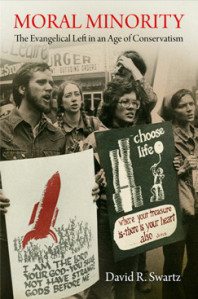 own ruminations about that heady week-end and how he became
own ruminations about that heady week-end and how he became 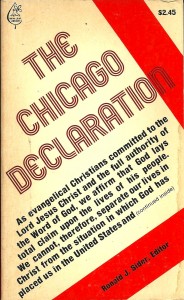 friends with the Mennonite scholar John Howard Yoder (with whom he often did speaking engagements, contrasting the cultural engagement approaches of Anabaptists and his own Reformed worldview) mean a lot to me and I commend the book to many of our friends just to read those powerful reflections. Again, this isn’t really a memoir – not too much inside baseball, telling of dramatic stories, revealing gossip – but a calm chronicle of the wisdom from this premier evangelical public intellectual about his own ideas and commitments, forged as they were over the years. But he does reveal some great stuff, and it will be gratifying for those who have been culturally-engaged Christians a while, now, and (I am sure) very important for the rising generation who need to know the story into which they are emerging.
friends with the Mennonite scholar John Howard Yoder (with whom he often did speaking engagements, contrasting the cultural engagement approaches of Anabaptists and his own Reformed worldview) mean a lot to me and I commend the book to many of our friends just to read those powerful reflections. Again, this isn’t really a memoir – not too much inside baseball, telling of dramatic stories, revealing gossip – but a calm chronicle of the wisdom from this premier evangelical public intellectual about his own ideas and commitments, forged as they were over the years. But he does reveal some great stuff, and it will be gratifying for those who have been culturally-engaged Christians a while, now, and (I am sure) very important for the rising generation who need to know the story into which they are emerging.
For many, Professor Mouw’s ruminations about how he is at once ecumenical, evangelical, and Reformed, will be very helpful. I hope mainline denominational folks read it, and I hope thoughtful evangelicals pick it up. (And I hope each learn to be as self-reflective of their own particular traditions as Mouw is about his own strand of Calvinism.) Again, in this era when even the public media tosses around the word “evangelical” without much nuance or understanding, Mouw’s storytelling will be very valuable.
In fact, as Public Radio star Krista Tippet (of On Being and The Civil Conversation Project) writes,
Richard Mouw’s account of his ‘adventures in Christian civility’ is, for the reader, an adventure through American, evangelical, and ecumenical evolution between the last century and this…. importantly, it winsomely brings into relief the virtue of Christian humility with which he has walked the faithful, exacting, intersection between the positions one holds and the way one treats kin, strangers, and enemies along the way. How grateful I am that Richard Mow is in the world , and how glad I am that he has written this book.
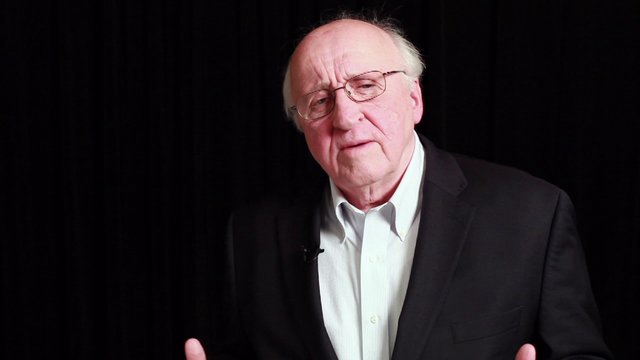 One of the most fascinating examples of Mouw’s eagerness to engage in dialogue with others is in his surprising passion for evangelical-Mormon dialogue. This has been a hard journey for him and perhaps the area in which his peacemaking and openness to “common ground” has been most controversial and misunderstood. He has published a bit in this field, summarized nicely in the Eerdmans paperback called Talking with Mormons: An Invitation to Evangelicals. Some of this is explained in a wonderful chapter in Adventures In… on interfaith conversations – again, he calmly narrates his learnings, tells some stories of certain conferences or events or how he came to write a book on the subject. Interfaith conversations are increasingly common and to get this right, framed by a nice balance between commitments to Biblical teaching and a generous commitment to humility, pursued with intellectual rigor among real friendships is so important. Again, Mouw represents a wise and faithful approach, not drifting towards an untenable universalism on one hand or an overly strict narrowness on the other.
One of the most fascinating examples of Mouw’s eagerness to engage in dialogue with others is in his surprising passion for evangelical-Mormon dialogue. This has been a hard journey for him and perhaps the area in which his peacemaking and openness to “common ground” has been most controversial and misunderstood. He has published a bit in this field, summarized nicely in the Eerdmans paperback called Talking with Mormons: An Invitation to Evangelicals. Some of this is explained in a wonderful chapter in Adventures In… on interfaith conversations – again, he calmly narrates his learnings, tells some stories of certain conferences or events or how he came to write a book on the subject. Interfaith conversations are increasingly common and to get this right, framed by a nice balance between commitments to Biblical teaching and a generous commitment to humility, pursued with intellectual rigor among real friendships is so important. Again, Mouw represents a wise and faithful approach, not drifting towards an untenable universalism on one hand or an overly strict narrowness on the other.
The other day a friend with progressive leanings teased me a bit when he saw the title of this book – “evangelical civility is an oxymoron,” he exclaimed – and I wanted to sit him down and read some of this exact chapter out loud. Mouw is evangelical with fairly conventional views of what the Bible teaches and what traditional “mere Christianity” orthodox demands. And he is indeed civil, generous, always searching for common ground, human commonness. If he can do this in interfaith circles, even within the greatly contested world of Latter Day Saints discourse and politics maybe it could happen among mainline church folk and their evangelical community church siblings across town. We can pray, and we can read this book.
And I’m not alone in declaring how wise and thoughtful and valuable this book is. Take a look at the rave reviews on the back cover.
Besides the beautiful endorsement from NPRs Krista Tippett, here are comments from Grant Wacker, church historian from Duke Divinity School and conservative writer and thinker Michael Cromartie of the Ethics and Public Policy Center, the popular Baptist policy advocate Russell Moore and the journalist and scholar Molly Worthen.
I like that they have such diverse critics commending this book to us. Krista Tippett is right — “Adventures in Evangelical Civility is written in the fullness of his voice – as a teacher and leader, a Christian public intellectual, and an immensely wise and gracious human being.”
Fine gems often come in small packages. With graceful prose and elegant simplicity, Mouw draws on classical Calvinists, biblical scholars, Mormon leaders, recent historians, Catholic and Anabaptist theologians, and theist and atheist philosophers to explore the manifold links between common and particular grace. As the premier evangelical public intellectual of his time, Mouw finds a mandate squarely within historic Christian orthodoxy for ‘convicted civility.’ This mandate calls for a principled effort both to speak to other ears and to listen to other voices that have similarly sought to see the glories of God’s self-revelation in the wider reaches of contemporary culture.
— Grant Wacker, Duke Divinity School
Richard Mouw has helped many of us make sense of so much over the years. Now he gives us a fascinating and intimate portrait of how his own convictions were formed. It is a lively and spirited tale of his journey through studies in philosophy, theology, and political theory, interspersed with stories of ecumenical dialogues and important encounters with religious leaders from diverse traditions. In the evangelical community, no one has more effectively defended and encouraged bringing orthodox Christian faith into the public arena with civility and clarity than Mouw. As Christians face the ongoing challenges of living faithfully in public life, this book is an inspiring testament by a man who has served as a model to so many.
— Michael Cromartie, vice president, Ethics and Public Policy Center
Richard Mouw and I were walking together to a dinner meeting in Washington, DC, one evening when we realized we were lost. It took us an hour to get where we were going, and I consider that God’s providence. I learned more in that hour’s walk than I had in a long time, and I’m still quoting what I learned from Dr. Mouw that night. This book is much like that walk. You, the reader, will find here deep insight into important topics, told with a gleam in the eye, all at a brisk, entertaining pace. You will ponder what you read here often. Even on those few points when I as a reader would argue with Mouw (on Mormonism, for instance), he kept my attention and sharpened me in ways I hadn’t anticipated. Richard Mouw’s life, brilliance, experience, and prose are extraordinary. Read this book. You will be the better for having walked alongside such a humble genius.
–Russell Moore, president, Ethics and Religious Liberty Commission, Southern Baptist Convention
What a treat to wrestle with modernity alongside a first-rate theological mind! At a time when the culture wars frequently shut down civil debate and fill our public square with rancor, Richard Mouw offers a powerful antidote. His reflections on a lifelong encounter with the great thinkers of the modern age–aimed at understanding the burden and beauty of our common humanity–will edify and encourage believers and nonbelievers of all stripes.
–Molly Worthen, University of North Carolina at Chapel Hill; author of Apostles of Reason: The Crisis of Authority in American Evangelicalism

SPECIAL OFFER:
WE WILL SEND YOU ANOTHER RICHARD MOUW BOOK ABSOLUTELY FREE
While supplies last. Offer expires November 27th.
HERE’S THE DEAL: BUY Adventures in Evangelical Civility: A Lifelong Quest for Common Ground by Richard Mouw (Brazos Press; $24.99) at our discounted price ($22.49) AND we will send to you at no charge with our compliments one of these two wonderful collections of short pieces by Rich Mouw.
Mouw’s a master of the short essay, an art he even mentions in his ruminations on being a so-called public intellectual in Adventures in… Take your pick. If we run out of your first choice, we’ll send you one of these two. Don’t wait, this deal only lasts a few days. After that, of course, we’ll still honor the discount, but don’t ask for the freebie after this week.
We can send, while supplies last, either of these two. Just tell us which you want as your free gift by using our secure order form page — use the link below. We’ll get back to you and confirm everything.
Praying at Burger King or Called to the Life of the Mind.
FREE with a purchase of Adventures…
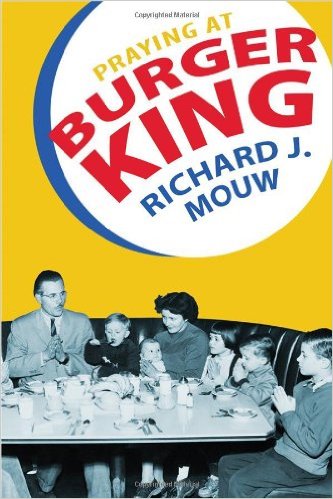
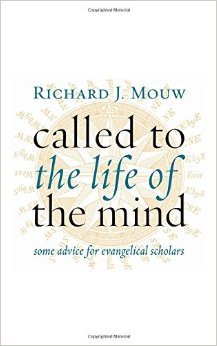
BookNotes
DISCOUNT
ANY ITEM MENTIONED
10% off
ORDER
Adventures in Evangelical Civility:
A Lifelong Quest for Common Ground
AND
get a free
Richard Mouw paperback
– while supplies last –
offer expires November 27, 2016 order here
takes you to the secure Hearts & Minds order form page
just tell us what you want
inquire here
if you have questions or need more information
just ask us what you want to know
Hearts & Minds 234 East Main Street Dallastown, PA 17313 717-246-3333
